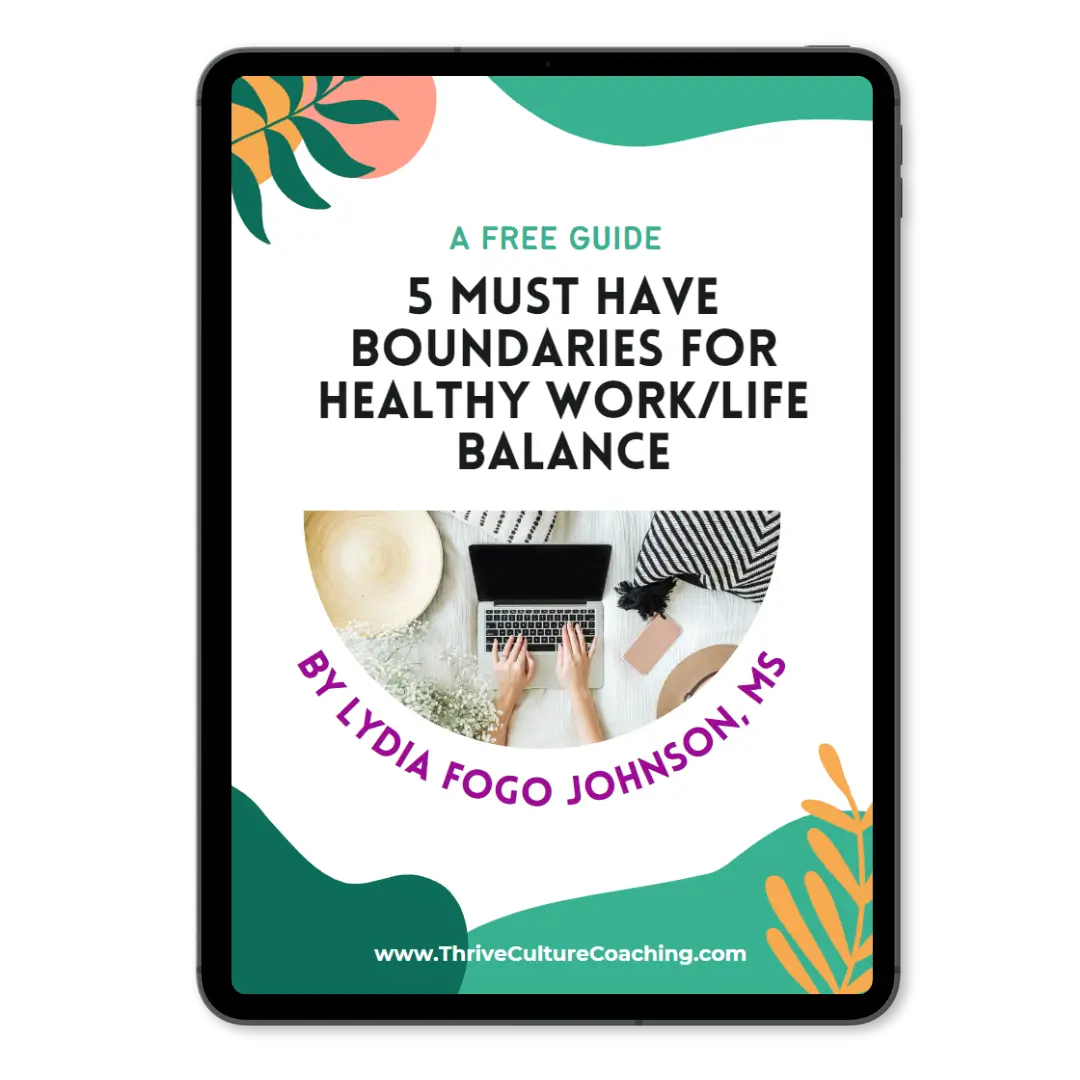Table of Contents
There is a magic formula that will help you better communicate in every single relationship you have, whether it’s with your boss, direct report, kid, or spouse: “I feel [emotion] when [situation] because [the need or reason behind your feelings]. I would prefer if/ could we [ideal situation].”
I know you’re thinking: WAIT! Why is this career coach sounding weirdly like my therapist right now?!
Yep, these are called I-statements or I feel statements, and they were created by a child therapist.
But, it turns out that effectively voicing your needs without blaming others is an essential communication skill in any arena of life… including your work life.
This is especially helpful if you need to voice your needs or concerns to peers who are your equals or superiors at work because it lets the problem be about you and not their (absolutely atrocious) communication or leadership style.1 AKA, they’re a perfect tool for managing up.

Using I Feel Statements for Managing Up
Let’s say you’re a new (or not-so-new!) employee who is uncertain about their role’s priorities. You might say… “I feel anxious when deciding what tasks to focus on because I’m not exactly sure what my top priorities should be in this role. Could we set up a meeting to identify specific indicators of success at the 30, 60, and 90-day mark so I can excel in this role more quickly?” See how you didn’t have to mention the terrible onboarding or the way your boss just tossed you into the deep in?
Or, maybe you’re feeling unconfident about your performance in a particular area because your boss has never given you an ounce of feedback. You might say… “I feel concerned that I might be missing ways to improve my client presentations. It’s important to me that I serve our customers as well as possible, so could we prep for my next presentation together so I can hear your thoughts and tips?”
You can even use this as a leader or manager to direct your team in the direction you need them. In this case, you might add a “how might we…” to invite your direct reports to help problem solve. For example, you might say…”I’m feeling concerned that we won’t look good on our demo on Friday because our site is down. I’d prefer if we made getting the site up our top priority and deprioritized other tasks till then. How might we go about that?”
How to Use I Feel Statements for Managing Up
Ask yourself the following questions to create your perfect I Feel statements:
- What unmet needs in this situation are causing you stress, unhappiness, or discomfort? This is the problem you are solving.
- We often have to internally acknowledge the “you” or “them” part of the problem before we can get to our role or needs. That’s OK! Jot this down, and then look at your part in this story. What do you need?
- For example, “they never give me praise” becomes “I’m craving more praise.”
- What emotions am I feeling right now? This becomes “I feel [emotion].”
- Are you struggling to pinpoint your feelings? Feeling wheels are great for adults, too!
- When do you feel this way? This is the “when [situation].”
- Dig a bit deeper… why do you feel this way? AKA, why do you care, and why is this important to you? This becomes the “because [reason behind your feelings].”
- Often, this is a value, boundary, or unmet need.
- Pro tip: If you’re managing up, this is a great time to mention a positive character trait of yourself as an employee. (E.g., “I care about our team doing well” or “our client’s experience is important to me)
- Consider your ideal; what would you prefer to happen instead in the future? This is the ‘“I would prefer if [solution],” “Could we try [solution],” or “How might we [get to needed outcome]?”.
- Check your work: Does this avoid blaming the other person while voicing your needs?




Share